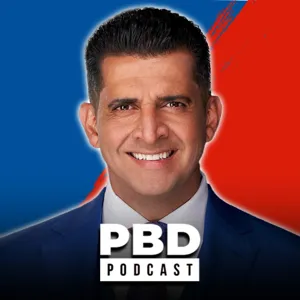According to the Center on Poverty and Social Policy at Columbia University, 14.3 percent of Americans — nearly 50 million people — were living in poverty in December. The scale of poverty in the U.S. dwarfs that of most of our peer countries. And it raises the question: Why does so much poverty persist in one of the richest countries in the world?
For the Princeton sociologist Matthew Desmond, the answer is simple: Poverty is a policy choice. It persists because we allow it to. And we allow it to persist because so many of us — whether we realize it or not — benefit from the exploitation of the poor.
Desmond’s 2016 book, the Pulitzer Prize winner “Evicted,” was a powerful ethnographic account of what it means to experience the depths of poverty. But his new book, “Poverty, by America,” is less about the poor than it is about the rest of us. It is about the people who are more comfortable with the perpetuation of poverty than with the changes that would be demanded for its abolition.
So this conversation is about why poverty in America persists, the choices we could make to end it and why we as a country are so stubbornly resistant to making those choices. We also discuss the heated debate over how to measure poverty in the first place, why Desmond thinks poverty is primarily a product of “exploitation,” why over $140 billion of government aid ends up never making it into the hands of the people it’s intended to help, Desmond’s view that the U. S. does “more to subsidize affluence than to alleviate poverty,” why the daily cognitive cost of poverty is as severe as losing a night of sleep, how the U. S. passed its most successful anti-poverty policy in decades and then let it expire, why Americans seem more willing to tolerate high poverty than high prices, why Desmond thinks sectoral bargaining and public housing are key pillars of any anti-poverty agenda, what it means to become a “poverty abolitionist” and more.
Mentioned:
Evicted by Matthew Desmond
Homelessness Is a Housing Problem by Gregg Colburn and Clayton Page Aldern
“The Time Tax” by Annie Lowrey
Scarcity by Sendhil Mullainathan and Eldar Shafir
“What the Rich Don’t Want to Admit About the Poor” by Ezra Klein
Book Recommendations:
What Then Must We Do? by Leo Tolstoy
Race for Profit by Keeanga-Yamahtta Taylor
Random Family by Adrian Nicole LeBlanc
Thoughts? Guest suggestions? Email us at ezrakleinshow@nytimes.com.
You can find transcripts (posted midday) and more episodes of “The Ezra Klein Show” at nytimes.com/ezra-klein-podcast, and you can find Ezra on Twitter @ezraklein. Book recommendations from all our guests are listed at https://www.nytimes.com/article/ezra-klein-show-book-recs.
This episode of “The Ezra Klein Show” is produced by Roge Karma, with Emefa Agawu, Annie Galvin, Jeff Geld and Kristin Lin. Fact-checking by Michelle Harris, Mary Marge Locker and Kate Sinclair. Mixing by Jeff Geld. Original music by Isaac Jones. Audience strategy by Shannon Busta. The executive producer of New York Times Opinion Audio is Annie-Rose Strasser. Special thanks to Pat McCusker and Kristina Samulewski.





